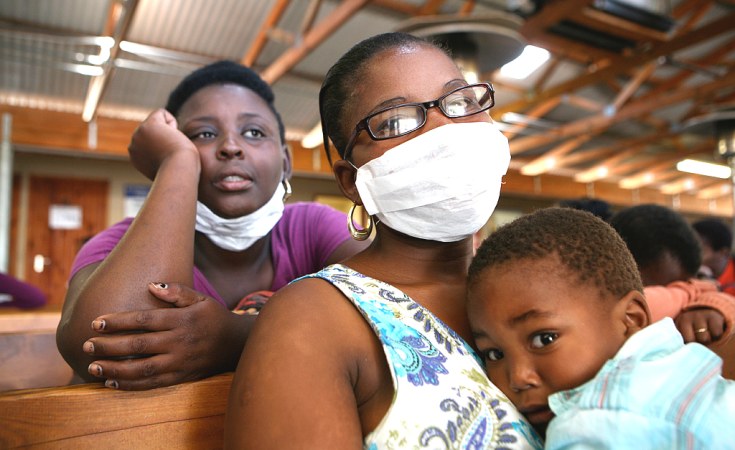Cape Town — In the face of the growing threat of tuberculosis that is resistant to standard medication, researchers are calling for renewed efforts to find a vaccine to prevent TB, while other initiatives are developing new medicines and diagnostic tools to fight the disease.
The flurry of announcements coincides with the publication of the World Health Organisation's "Global Tuberculosis Report 2012".
According to the WHO, while new TB infections and deaths have fallen around the world, there has been "persistently slow progress" in the response to multi-drug resistant TB (MDR-TB). Of those patients estimated to have MDR-TB, only one in five is currently being diagnosed worldwide.
The WHO report also found that despite general global progress, efforts to reduce TB in Africa and Europe were missing their target.
This means that the African region is unlikely to achieve the goal of halving the 1990 levels of TB mortality by 2015.
Ahead of the release of the WHO report, the non-profit organization TB Alliance announced a partnership with the Foundation for Innovative New Diagnostics (FIND) to co-ordinate the development of mechanisms to fight MDR-TB and identify emerging drug resistance trends around the globe.
While acknowledging the improved outlook in combatting the disease, President of the TB Alliance Mel Spigelman said "new tools to help treat, diagnose, and prevent TB are needed to provide the global TB control effort with much-needed improved weapons to enable increased progress against this pandemic and save the lives of millions".
Across the planet, TB kills some 1.4 million people, making it the world's second deadliest infectious disease after HIV/Aids. South Africa has the highest levels of TB infection in Africa, while the continent bears a quarter of the world's burden of TB disease and death.
Treatment of standard TB requires daily medication for a period of six months, while treatment of MDR-TB lasts a minimum of 18 months with much stronger – and more expensive – medicines.
Describing current treatments for TB as "antiquated and inadequate", Spigelman called for the development of new drug combinations that were "shorter, less complex, cheaper, and that have fewer side effects".
Spigelman lauded the results of a clinical trial of a new TB drug combination announced in July this year by his organization, which has the potential to shorten and simplify treatment for TB and MDR-TB patients.
"With a new generation of TB treatments on the horizon, we must learn what drugs will work best for each case, allowing doctors to start TB patients on a proper course of treatment as quickly as possible," said Spigelman. "Only then can we move toward profoundly greater control of this epidemic and ultimately eradicate TB once and for all."
Earlier this week in London, other TB researchers held a media briefing calling for a greater focus on the search for new vaccines to address MDR-TB.
Citing an article published in August by the respected medical journal, The Lancet, which showed that levels of MDR and extensively drug-resistant TB (XDR-TB) are higher than anticipated, the researchers said a vaccine to prevent TB was the "ultimate, long-term, cost-effective solution for addressing tuberculosis".
While better drugs and diagnostics were important to enable the rapid identification of drug resistant strains of TB, professor of vaccinology at Oxford University, Helen McShane called for investment in vaccine research now "if our ultimate goal is to be able to prevent the disease rather than forever chase growing drug resistance with new drugs".
There are more than a dozen of TB vaccines in clinical trials, but the vaccine developed in McShane's laboratory is the most advanced candidate at this stage. The first efficacy results are expected in early 2013 based on the results of a clinical trial in South Africa.
Potential new drugs and vaccines undergo four phases of trials before they are approved for widespread use.


